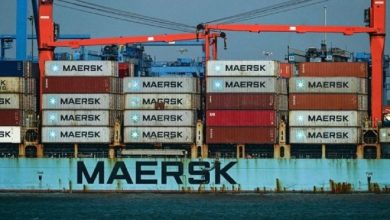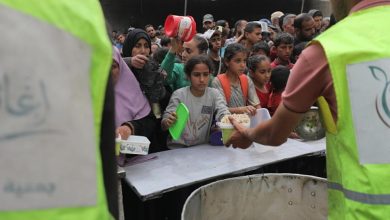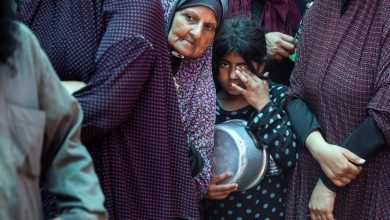The Strangling of Palestinian Communities in the Jordan Valley: A Struggle for Survival
How Settler Violence and Military Restrictions are Forcing Palestinian Shepherds to Flee Their Ancestral Lands.

Watan-Despite the expansive and open space of the Jordan Valley, its Palestinian residents feel as though a tightening noose is around their necks. This is particularly evident in the northern region of the valley, where the shepherds of Ein al-Halwa live.
Recently, the Israeli flag was raised at the entrance of the village, accompanied by a sign reading “Metzpe Hadigal.” The arrow on the sign directs visitors to walk between the houses of the residents. This outpost, essentially a shack on a hill overlooking the homes, flies the Israeli flag as well. The purpose of this shack is solely to disrupt the lives of the Palestinians.
On the other side of the street, a spring that was once the main water source for the settlement is now a recreational area for settlers and Israelis. The spring has been renamed “The Flag Spring,” and it has turned into a pool and a site for Israeli leisure activities.
Trapped in the Jordan Valley: The Struggle of Palestinian Shepherds
In August, an outpost called the “Bintsi Farm” was established near the farmland of Ein al-Halwa. Since then, Palestinian residents have been barred from accessing their land without prior coordination. They can only go to graze their animals if accompanied by Israeli activists, and even then, they must be careful not to stray too far from their homes.
“It’s like we’re trapped,” said Mahdi Daraghmeh, head of the Malih Council, which organizes the shepherds’ gatherings. He said that 50 families out of 300 had recently left the area, effectively being expelled. Last year, the Um al-Jamal community was forcibly displaced. “The problem is there is no alternative,” Daraghmeh added. “Those who move to Area A (Palestinian cities) suffer, and they have no jobs. The situation there is like a prison.”
The harassment of Palestinian shepherds by settlers goes beyond raising flags. They are subjected to daily violence, often in the form of physical assault, and in other cases, settlers find creative ways to disrupt their lives. In a video taken by residents of Ein al-Halwa last week, the “hilltop youth” were seen arriving at night, blasting loud music. Though isolated incidents like these may seem insignificant, the cumulative effect, combined with the constant expulsion of shepherds from their livelihoods, is deeply felt by the entire region.
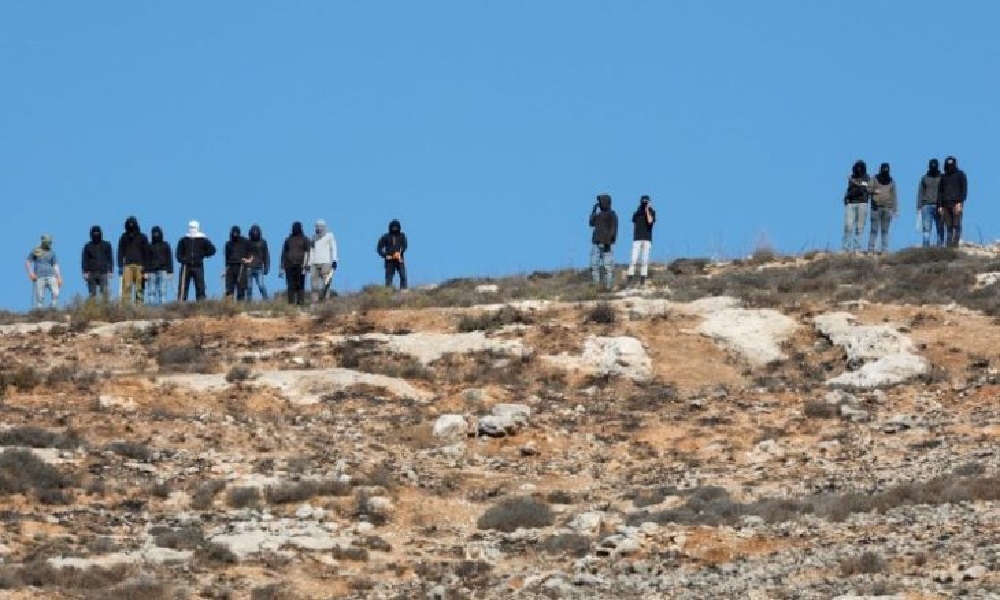
The Pincer Movement: Palestinian Families Trapped by Settler Violence and Displacement
“They come to the village and throw stones at the houses,” said Fadi (a pseudonym), a resident of Ein al-Halwa who preferred not to reveal his real name for fear of retribution. “The law only applies to us, not to them. If I throw a stone, 20 police officers show up instantly, but if a settler kills one of us, nothing happens to them.” Fadi said his wife and children in the village have not been able to sleep in recent weeks due to settler attacks. “We don’t want land or a state, we just want to live,” he said. “But where can we go? They will come to our new place too.”
Fadi’s account echoes the story of Yasser Abu Aram, who lives far from Ein al-Halwa. He left his home in March after settlers set up a tent a few meters from his house. “They used to enter every day, stole my donkey, didn’t let me graze my flock, and arrested my children, so we decided to leave,” said Abu Aram. He moved to the outskirts of Tubas and rented a plot of land.
However, he claims that civil administration officers later confiscated all his property. “They didn’t even give me a minute, and they took everything—tents, water tanks, feed—and left the little children in the sun,” he recalls. He estimates his losses in the hundreds of thousands of shekels. Abu Aram moved a few kilometers further. “I expect they will come here too,” he said. His former neighbors feel that if they wanted to leave, there is nowhere left for them to go.
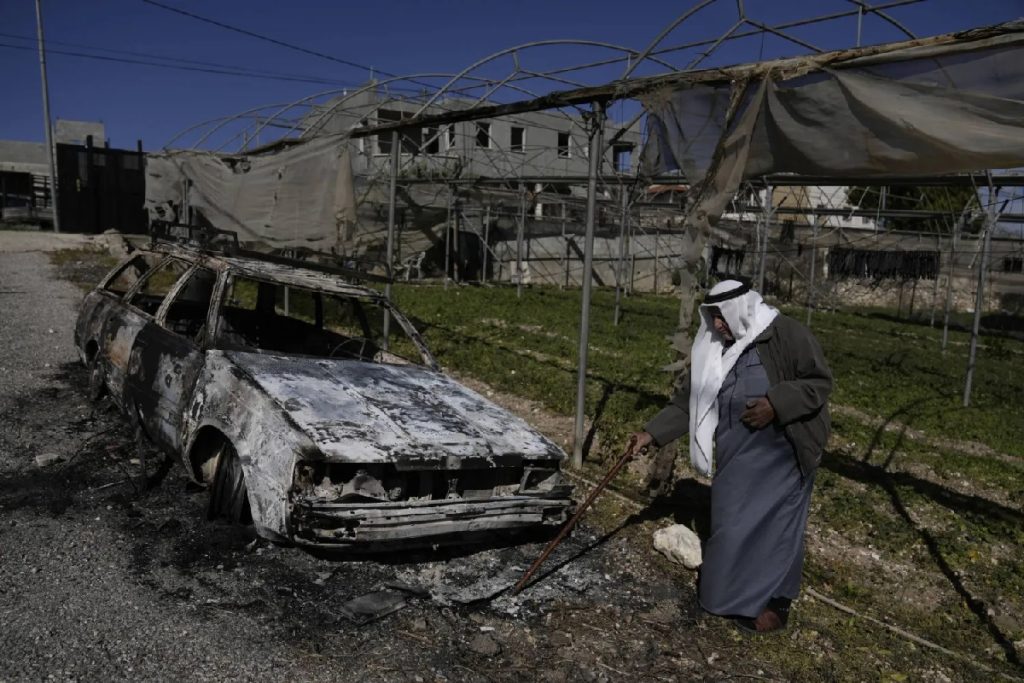
The ‘Pincer Movement’
The expulsion of Palestinian herding communities from the West Bank has accelerated due to the war in Gaza. Until 2023, the primary reason Palestinians were forced to leave areas of “C” was the demolition of homes built without permits by the civil administration. However, the situation has changed since then. According to data from OCHA, the UN Office for the Coordination of Humanitarian Affairs, 670 Palestinians were displaced from their homes in the West Bank in the past two years due to house demolitions, compared to over 2,200 people who had to leave because of settler violence, harassment, and restrictions on access to their lands. From 2020 to 2024, violence against Bedouins and herding communities increased sevenfold.
Council head Daraghmeh links the occupation at the beginning with the current situation but emphasizes that “there are old settlements with farmers, and there are others who came later and cause problems. The outposts are a disaster for us.”
The departure of Bedouin communities is a result of significant economic damage due to the joint pincer movement of settlers and the state. Settlers harass the herders, while the state designates military training areas and nature reserves. Herders who find themselves without grazing land become impoverished by the high costs they incur for sheep and cattle feed. Some have started selling their sheep. “We had 200 cows,” said Fadi. “30 of them died of hunger. We sold some to feed the rest.” In fact, many of the cows in the area are visibly malnourished.
At the beginning of the war, as revealed by Haaretz, the Jordan Valley local council began confiscating Palestinian herds, claiming they were grazing on land that disturbed the landscape. Israel confiscated 50 cows from Fadi. Residents filed petitions with the High Court of Justice through lawyers Michael Sfard, Shnir Klein, and Shlomo Leker. The court issued a temporary order prohibiting the council from continuing the confiscations. However, the confiscated animals have not been returned, and the legal proceedings are ongoing. “I worked in Israel, but that stopped. After that, we relied more on the cows,” Fadi said. “Now, they don’t even allow us to do that. They don’t want me to work or graze my sheep. So, what do they want me to do? Steal, then put me in jail or let me die of hunger?”
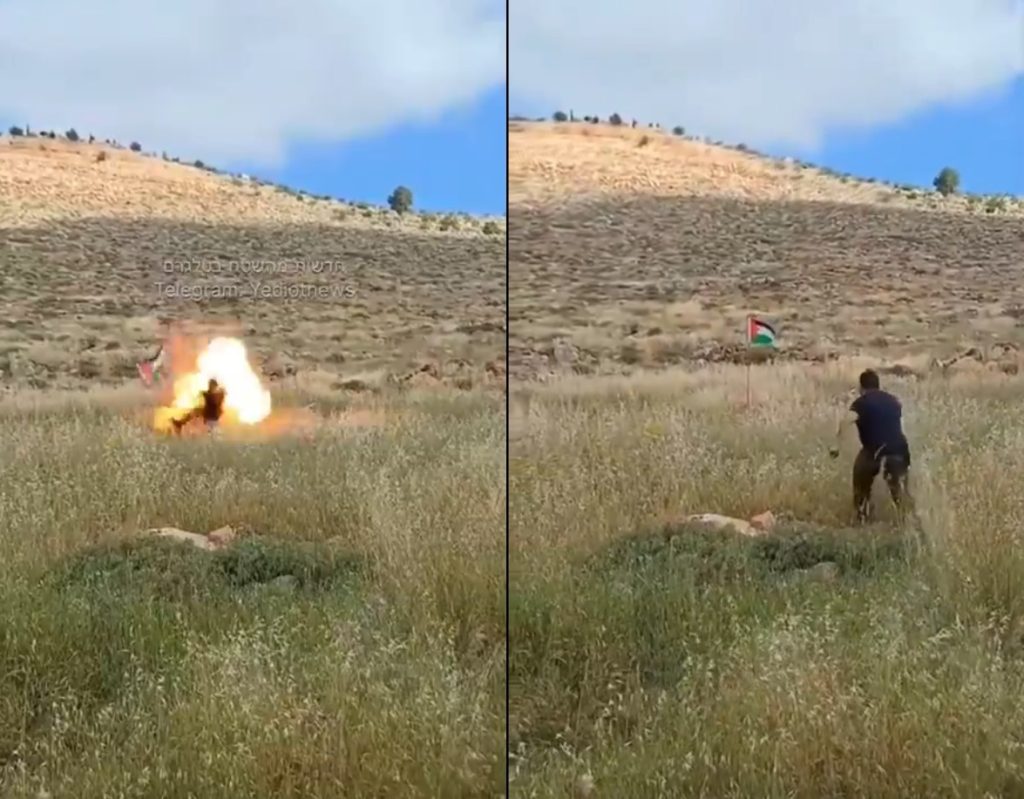
Living Under Siege: Palestinian Shepherds Rely on Activists Amidst Settler Violence
Amidst the harassment of Palestinian herders, they have become reliant on Israeli activists who come daily to accompany them, including members of a group called “Activists of the Jordan Valley.” “Without the activists, we would have left,” said Shadi (a pseudonym), Fadi’s brother. Naturally, not everyone is happy with their presence. Fadi said that two weeks ago, an army officer told him not to bring activists because “they cause problems.” He said the officer assured him that he would take responsibility, but after the activists left, 20 settlers arrived immediately. According to Fadi, one settler told him: “What are you going to do? Call the army and police? Are you crazy? They’re all my friends.”
Fadi’s extended family members, who live not far from there in the small village of al-Farisya, also describe a barely surviving life and talk about the harsh conditions in the area. “We are thinking of leaving because of our suffering,” said Fatiha Daraghmeh. “We thought about selling the animals, but we have no other source of income.”
Fatiha Daraghmeh mentions particularly harsh acts of violence. On Eid al-Fitr, settlers broke into the village and attacked a widow and her children. Last September, a settler entered their house, threw the chicken off the dining table, and opened the water tank faucet to let it leak. This is a severe violation for those who are not connected to a water supply and must buy water with their own money.
About a month ago, Fatiha’s family says, settlers began blocking the road leading to the spring, where they used to water their sheep, after being banned from grazing in their former grazing areas. Ahmed, Fatiha’s son, said, “Young settlers come from different outposts and enter between the houses. Once, I called the police maybe twenty times, and in the end, the army came and said what they were doing was allowed, and that as long as they didn’t enter the houses, it was fine.” According to him, three families left the village of al-Farisya. “They are tightening the noose on us,” he said, using the same image that his relatives in Ein al-Halwa use: “We are now in prison.”


